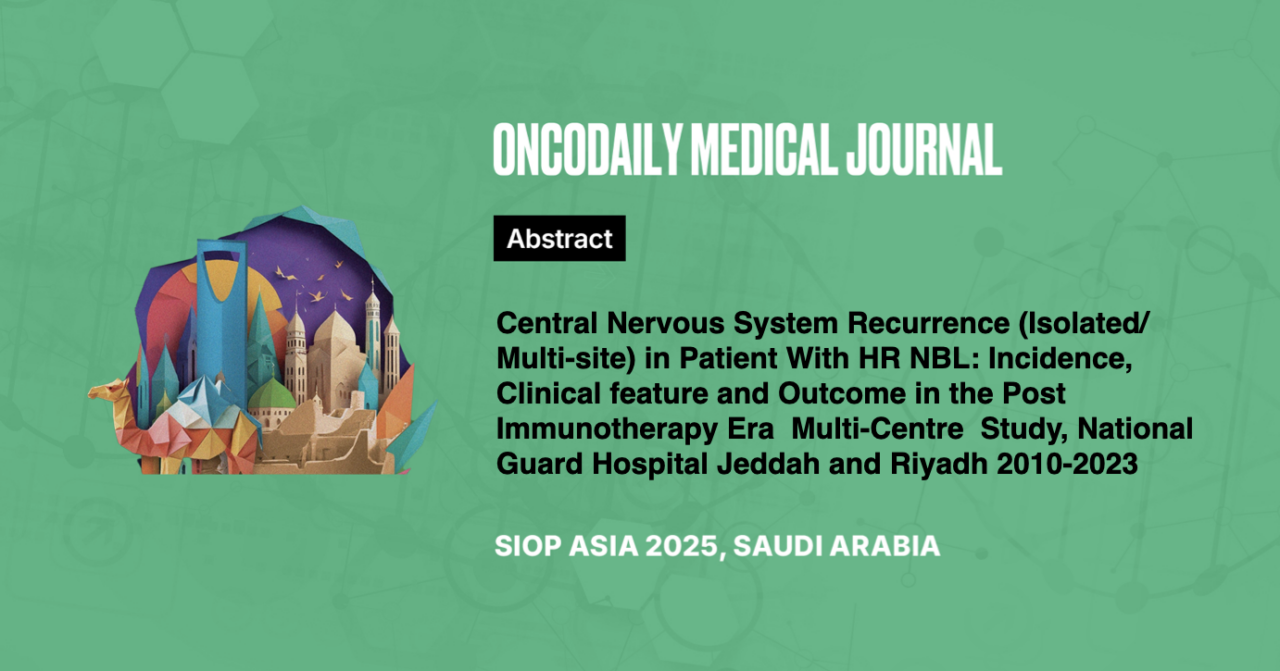Abstract
Introduction: Despite Recent advancements in treatment, high-risk neuroblastoma patients continue to experience poor long-term survival rates, with approximately half of high-risk patients relapsing. Central Nervous system involvement at diagnosis or as recurrence is rare but carries a poor prognosis. This study aimed to analyze the incidence, presentation, risk factors, and outcome of CNS recurrence in HR NBL patients. Additionally, it sought to evaluate the impact of newer therapeutic approaches, particularly anti-GD2 immunotherapy, on CNS recurrence incidence and outcome.
Methodology: A retrospective analysis of 58 stage IV HRNBL patients aged 0-14 years was conducted, covering the period from January 2010 to December 2023 from King Abdulha Specialist Children’s Hospital in Jeddah and Riyadh.
Results: The study found a 31% CNS recurrence rate, notably higher than previously reported. CNS involvement and bone marrow involvement at diagnosis were significantly associated with increased risk of CNS recurrence. Immunotherapy did not significantly affect CNS recurrence rates but was associated with a lower rate of local relapse. The overall survival rate for patients with CNS recurrence was 5.6%. While multimodal therapy was associated with a longer time to death in patients with CNS recurrence compared to those without, this difference was not statistically significant.
Conclusion: This study highlights a higher-than-reported incidence of CNS recurrence in HRNBL. CNS and bone marrow involvement at diagnosis are significant risk factors for CNS recurrence, warranting vigilant surveillance for those with high CNS recurrence risk to diagnose CNS relapse at an early stage and allow adequate multimodal therapy. While immunotherapy’s impact on CNS recurrence was not significant in this cohort, it did influence relapse patterns. The dismal prognosis associated with CNS recurrence underscores the need for further research and improved therapeutic strategies.





